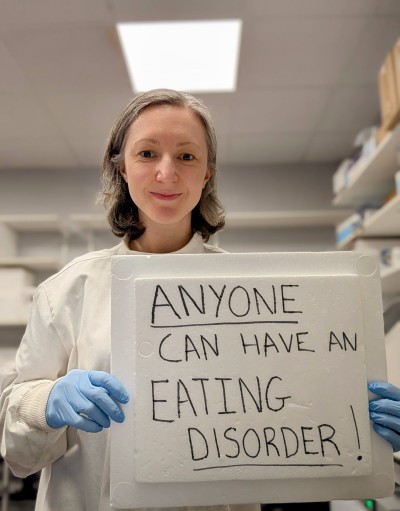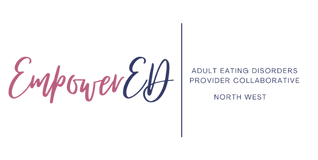Emma's journey by EmpowerED Expert Emma:

Emma’s article is an open and honest account of her experience with an eating disorder, diagnosis and relapse. This could be triggering to read if you are experiencing difficulties with your own eating and you may wish to consider some of our other Expert by Experience accounts.
Over two decades ago I received a diagnosis that would profoundly shape the rest of my life: an eating disorder.
Despite an early diagnosis by my GP, lack of specialised treatment in my area meant I waited seven years before receiving professional help. This delay caused immense psychological distress for both me and my family, and it put my physical health at serious risk.
How did my diagnosis feel?
Scary. Confusing. Isolating. Yet having my experiences, symptoms, and behaviours collectively labelled as an eating disorder, in my case anorexia, felt overly simplistic. Beneath the surface, there was much more at play. Intrusive thoughts, negative feelings, and difficult emotions stretched far beyond food, hunger, and body image. My internal struggles deprived me of opportunities for comfort, belonging, or acceptance. I was fearful of many things, not just eating, but of my performance at school, college, and university, my relationships with family and friends, and my place in the world. I resorted to restrictive and highly repetitive eating patterns to cope with everyday challenges. I found it impossible to share this experience with anyone. I felt like I did not fit it anywhere or with anyone. I became deeply depressed and withdrawn.
Professional support
Building a trusting relationship with my therapist took months. Initially, I struggled to effectively communicate my thoughts, feelings, emotions, and experiences. I just did not know how or where to start, and I hated having the attention on me. Each session I would arrive terrified, resistant, and reserved. The quality of the relationship that developed between me and my therapist was key to overcoming these challenges. Progress was slow at first, but I felt supported, listened to, and cared for, which gave me hope.
I am pleased to say that the therapy and support I received brought many positive changes to my life. When I left therapy, things were ‘good’—at least compared to the past. I secured a dream job, moved out of the family home, and started my first committed relationship. Although I continued to experience depression and anxiety, I managed to maintain relative stability with food and weight. Surely, this meant I no longer had an eating disorder?
Relapse
Several years later, personal challenges triggered the return of my food-related anxieties, my Achilles’ heel. That deeply ingrained neural pathway was my default coping mechanism. However, this time, the pattern was a little different. I experienced extreme swings between food restriction and binge eating. The more I leaned into one behaviour, the harder and faster I swung to the other, rarely finding a safe middle ground. My body resisted food restriction to the point where any perceived threat of food scarcity compelled me to consume large amounts of food.
These two seemingly opposite behaviours—restricting and bingeing, feeling in and out of control around food—were deeply confusing and frustrating. I was consumed by anger and shame about myself and my actions. I also felt deflated, as I had believed my eating disorder was behind me and struggled to accept that it was still present. Although I kept my struggles a secret from friends and family, I sought professional help. Unfortunately, this time, I did not receive the support I needed. The focus on my behaviours, rather than the underlying psychological and physiological issues, only worsened my condition. Feeling hopeless and alone, I withdrew from the service; despite knowing I desperately needed support.
Present day
Therapy, combined with educating myself through books and online content, has helped me to recognise, accept, and experience my emotions without resorting to food, self-punishment, avoidance, restrictive or dissociative strategies to cope.
By talking about my experiences and listening and learning from others, I continue to learn, grow, and deepen my understanding of myself and my experience of having an eating disorder.
